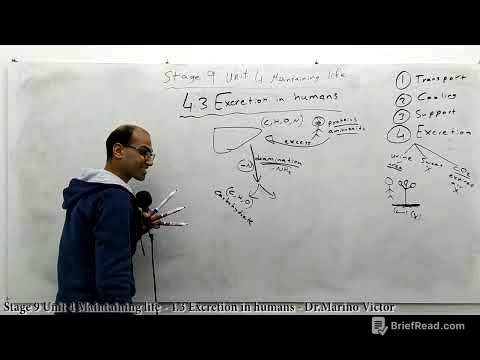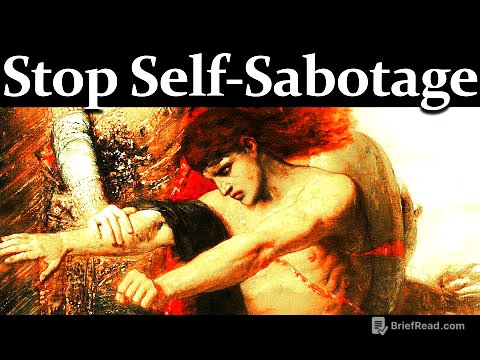TLDR;
Emanuel Todd's "The Defeat of the West" is a significant book analysing the current geopolitical landscape. This video breaks down Todd's complex arguments, including his historical and sociological underpinnings, the key ideas defining the West's decline, and a narrative of the last 30 years leading to the Ukraine crisis. Todd argues that the West, driven by internal societal shifts and a detached "Washington Village," has walked into a strategic trap, risking global stability.
- The West's current trajectory is towards a strategic defeat, marked by a potential German-Russian rapprochement and the de-dollarisation of the world.
- Key factors include the decline of collective beliefs, the rise of a liberal oligarchy, and the influence of a detached "Washington Village".
- The last 30 years can be divided into phases: a peaceful phase (1990-1999), a period of hubris, an American reaction to German hubris, and finally, the trap of Ukrainian nalism.
Introduction [0:00]
The video introduces Emanuel Todd's book, "The Defeat of the West," highlighting its importance in understanding contemporary history and geopolitics. The book, though not yet translated into English, presents complex ideas requiring background explanation. The video aims to explain the book's key ideas, the underpinning societal concepts, and provide a preview of the narrative of the last 30 years, focusing on how NATO and the United States entered the "trap of Ukraine." This analysis is particularly relevant given the upcoming NATO Summit in Washington.
Underpinning Ideas [3:29]
Emanuel Todd's analysis is rooted in historical sociology, drawing from the "annals School" tradition, which examines long-term societal developments. He identifies three broad sociological characteristics: family structures, educational stratification, and democracy. Todd argues that Anglo-American societies developed individualistic family structures that underpin liberalism. The growth of mass literacy supported a democratic ethos, but the subsequent explosion in higher education led to a division between the educated elite and the masses. Todd suggests that Western societies have become increasingly devoid of collective belief, impacting their approach to global events.
What is the Defeat of the West? [11:15]
The "defeat of the West" is not a simple prediction of Russia's victory in the Ukraine war. Instead, it refers to a strategic defeat where the United States has entered a bidding war from which it cannot escape without suffering global military, economic, and ideological consequences. This defeat includes the potential for a German-Russian rapprochement, the de-dollarisation of the world, and great poverty. Todd argues that the US is driven by a need for violence, shaped by its societal history rather than rational cost-benefit analyses.
Five Key Ideas [14:50]
Todd's book focuses on five key ideas to explain the defeat of the West. Firstly, the West is born in protestantism, which shaped its culture and political institutions. Secondly, the West is now in a zero state of religion, devoid of collective beliefs. Thirdly, this leads to nalism, a tendency towards believing nothing and destructiveness. Fourthly, the West has transformed into a liberal oligarchy, where the rights of the elite are primarily protected. Finally, these factors converge in the "Washington Village," a detached group that conducts foreign policy with a lack of diplomacy and empathy.
The Washington Village [25:46]
Todd analyses the "Washington Village" as an anthropologist would study a tribe, highlighting its singular morals and its role in leading the West to the "gates of Russia." This group, also referred to as "The Blob," suffers from a tendency towards oligarchy, a belief in its superiority, nalism, and an absence of collectivist values. This culture leads to a lack of diplomacy, a failure to empathise with other countries, and a tendency to treat politics as mere political theatre, ultimately driving the disastrous march towards the war in Ukraine.
Narrative of the Last 30 Years [30:39]
Todd presents a narrative of the last 30 years, tracing the West's trajectory from its perceived victory in the Cold War to its current state. This period is divided into four phases: the peaceful phase (1990-1999), a period of hubris (1999-2008), an American reply to German hubris (2008-2017), and the trap of Ukrainian nalism (2016-2022). The West's weaknesses and the leadership issues within Ukrainian society have drawn it into a dangerous trap, leading to a situation where NATO faces a strategic defeat or a catastrophic decision.









